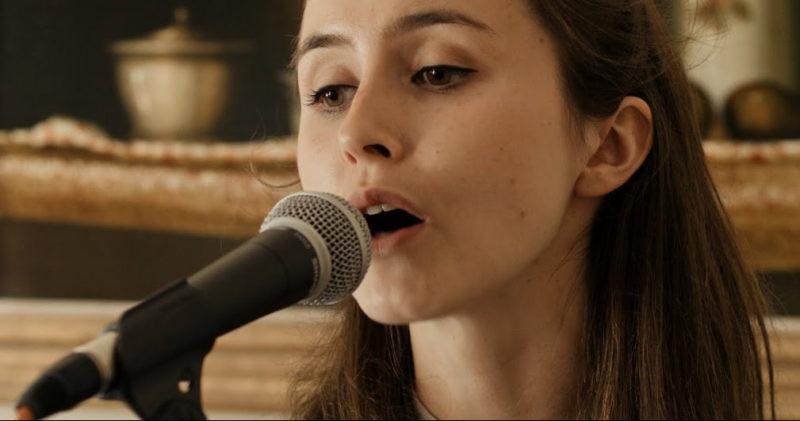Last autumn, Rachael Lavelle, a 26-year-old singer, composer and songwriter from Dublin, finished a run of Irish dates opening for her longtime friends, Saint Sister. Lavelle’s voice is extraordinary when recorded, and even more profoundly moving when heard live. The uniqueness of tone and timbre is apparent at first, while the width and breadth of her range is a stunning secondary wonder.
Lavelle began songwriting while studying sociology and Italian at Trinity. As she’s telling me about her grandfather, a composer, and about how he gave her the confidence to pursue music, the Cranberries’ “Ode to My Family” plays over the speakers in Simon’s Place. After her undergraduate degree, she undertook a master’s degree in music and media technology, a course that she reckons changed her whole understanding of music and songwriting.
“The whole idea”, she says, “was to go way further than you’re meant to go, and any potential boundary was taken away”. In the period following her MPhil, Lavelle wrote the songs that will appear on her upcoming album, one of which, entitled “Perpetual Party”, was released last month.
Songwriting changed a little for her after the course. She found that she was “thinking too analytically about music”. She elaborates: “Everything had to have a purpose, and in my songs, I felt I needed to know what exactly I was saying.” I offer that it maybe also has to do with growing up a bit, that we raise our standards for ourselves and our work to near-impossible levels the more art and life we experience. She agrees that overthinking can be the death of creativity, and then we both agree to stop doing it, simple as.
In music it’s nice because you’re given permission to say anything – it feels like a safe space
After university, Lavelle took some time out from gigging to write. She spent time on an artist residency in Lisbon, where she recorded found sounds, some of which became drum samples that currently feature on the tracks in her live set, and will feature on her album. She talks about her process being somewhat meticulous and slow, but always worth the solitude. “I’m really interested in soundscapes and immersive sounds, so I wanted to find a way to blend my musical tastes with these things, and to have control over it as well”, she says. “I believe that I needed the space and time to mess around by myself, in order to find what would be mine. I don’t think I would have gotten that if I had gone straight into a producer.”
She also finds journaling helpful. We’re talking about one of her songs, “Reply All”, and she says that the song is mainly concerned with the many roles we play in our lives. “In music it’s nice because you’re given permission to say anything – it feels like a safe space. Even though to some people it’s terrifying, I feel strangely safe and at peace on the stage.”
She elaborates: “I’m interested in the different settings we find ourselves in, and the people we talk to, and the guards we put up. I liked the idea that this song was like those guards were lifted, but then the question becomes who’s talking – is it me, or is it a parental voice putting pressure on me, or society telling me to get things together?” Lavelle wonders if her interest in everyone being “obsessed with feeling like they have to know exactly who they are” comes from studying sociology, and then decides that it probably does.
The conversation turns to the pressure on musicians, especially now due to our culture’s obsession with social media, and the pressure to have a “brand”. Lavelle mentions the sociologist Erving Goffman and his writing on how the word “person” comes from the Latin “persona”, which literally means mask, and how our “masks” are tailored to suit whatever situation we’re in.
“My music is theatrical onstage but could be equally real offstage. It’s definitely an existential crisis, I’m always having one I think.” We agree that songwriting is a lonely pursuit, but that there is a creative tension between doing it for yourself, and other people enjoying what you create. “When you’re a writer you can’t switch it off – the feeling you get if something you’ve made feels worthwhile. When people say that they’ve connected with a lyric, you’re reminded you’re doing something of value.”







